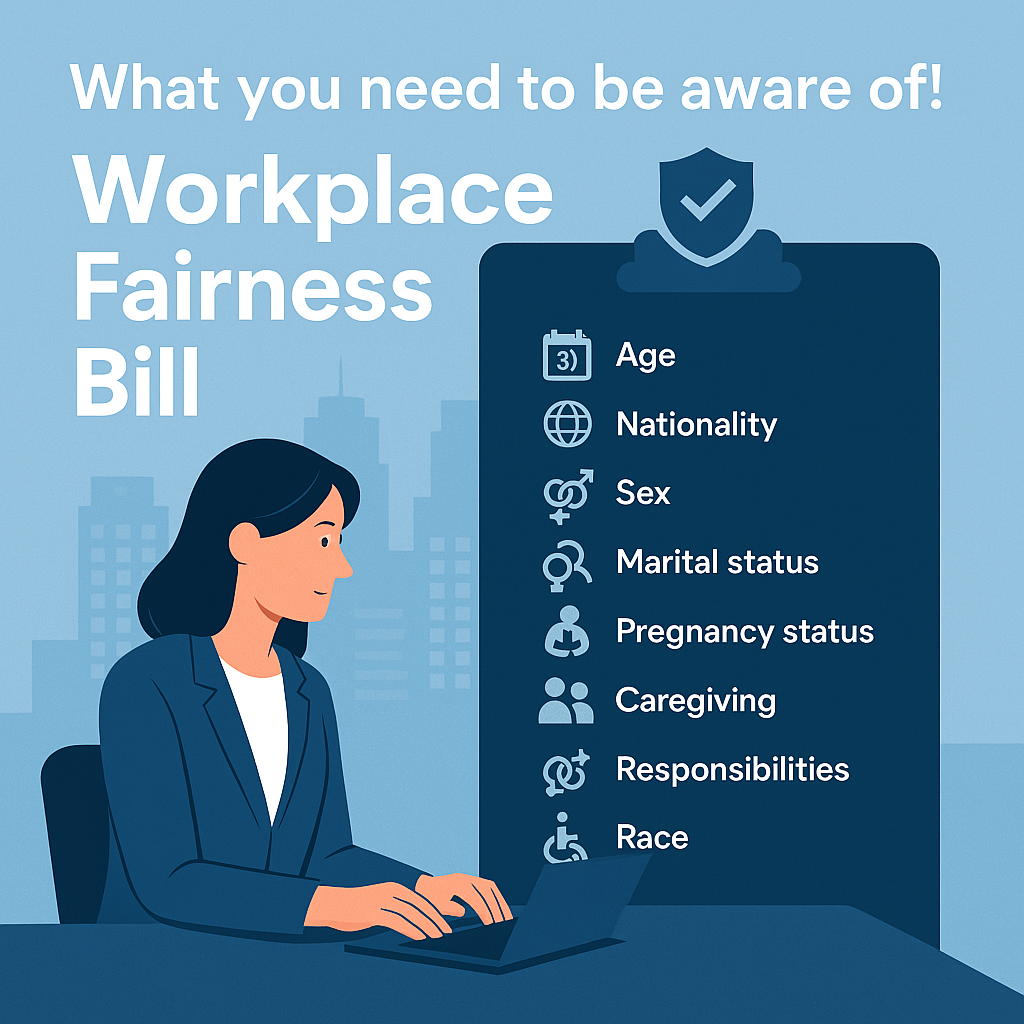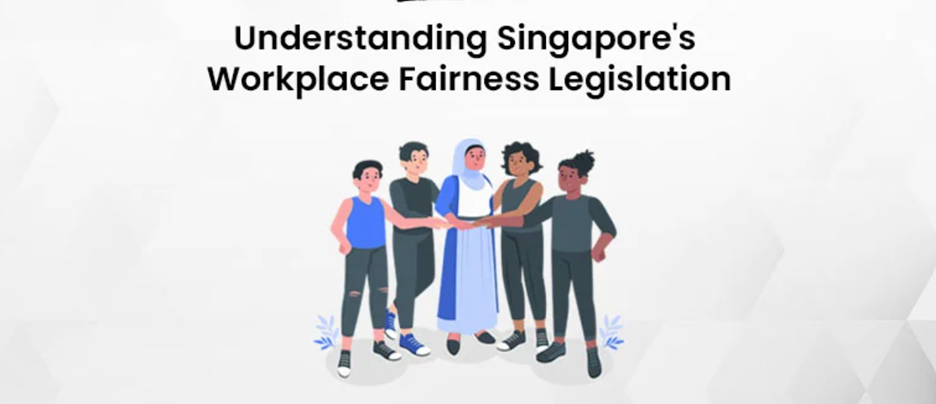
What you need to be aware of!

In November 2024, the Singapore Parliament introduced the Workplace Fairness Bill, marking a significant step toward enshrining anti-discrimination measures into law. This legislation aims to protect employees from discriminatory practices across various stages of employment, including hiring, ongoing employment, and termination.
Key Provisions of the Workplace Fairness Bill:
- Protected Characteristics: The Bill prohibits discrimination based on specific attributes, including age, nationality, sex, marital status, pregnancy status, caregiving responsibilities, race, religion, language ability, disability, and mental health conditions.
- Scope of Application: Initially, the legislation will apply to employers with 25 or more employees, with a review planned in five years to potentially include smaller businesses.
- Prohibited Practices: The Bill outlaws discriminatory policies and job advertisements, ensuring fair treatment throughout the employment process.
- Exceptions: Certain exceptions are acknowledged, such as genuine job requirements, considerations related to age, citizenship, permanent residency status, religious groups, and specific cases where non-discrimination policies may not apply.
- Employer Obligations: Employers are mandated to adhere to fair employment practices, which include:
- Complying with job advertisement requirements under the Fair Consideration Framework.
- Implementing effective grievance handling processes.
- Avoiding retaliatory actions against employees who raise concerns.
- Enforcement and Penalties: The legislation categorizes offences into civil contraventions and serious civil contraventions, with penalties reaching up to SGD 250,000, depending on the severity of the breach.
- Dispute Resolution: A structured process for dispute resolution is outlined, with a second Bill expected in 2025 to detail claims procedures and necessary amendments to the Employment Claims Act.
Implementation Timeline:
The Workplace Fairness Bill is part of a phased approach, with full implementation anticipated by 2026 or 2027. This timeline allows employers sufficient time to align their policies and practices with the new legal requirements.
This legislative development underscores Singapore's commitment to fostering an inclusive and equitable workplace environment, ensuring that all employees are treated fairly and without discrimination.







